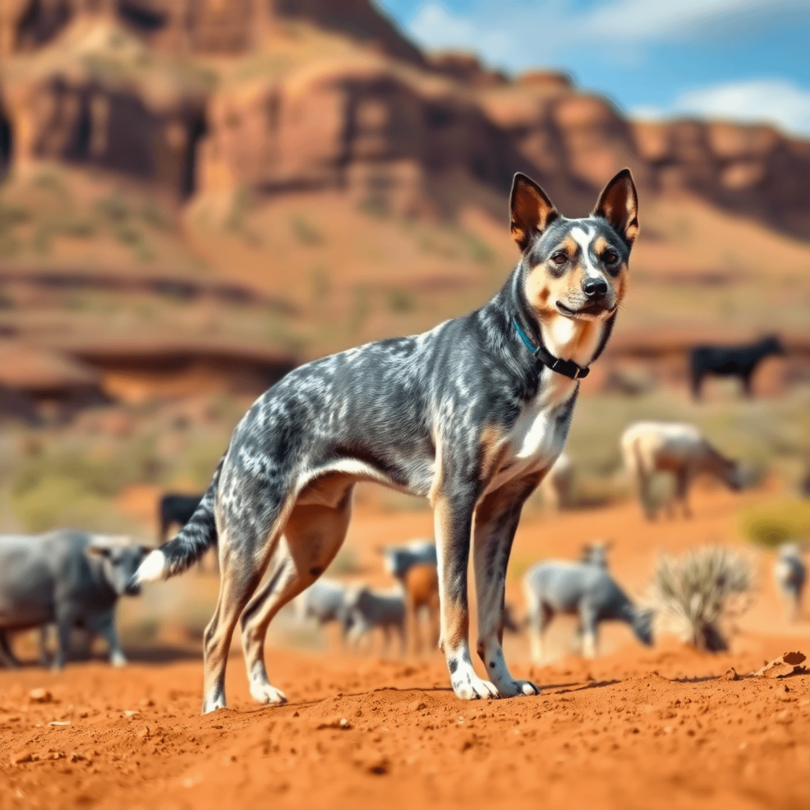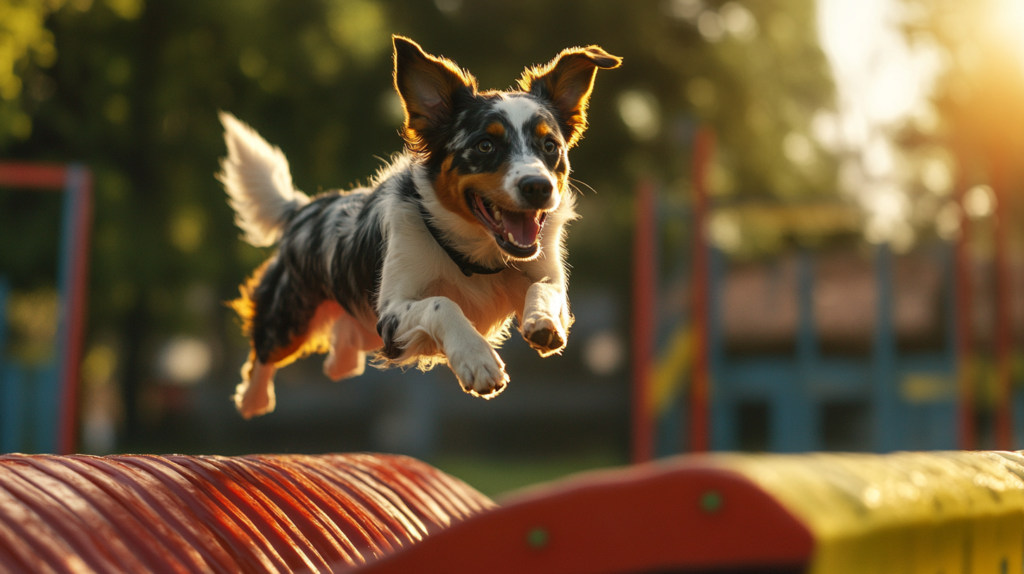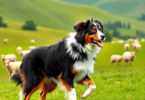Introduction to ACD Temperament
The Australian Cattle Dog (also known as the Blue Heeler or Red Heeler) has a rich history, originating in the 19th century across the rugged landscapes of the Australian Outback. Bred primarily for herding cattle, these dogs quickly developed a reputation for their intelligence, agility, and strong work ethic. Their unique ability to nip at the heels of cattle made them invaluable companions for farmers and ranchers, ensuring efficient management of livestock.
Understanding the Australian Cattle Dog’s temperament and personality is essential for new owners. These spirited canines are not just about looks; they come with a distinct set of characteristics that can impact their behavior and training. Here’s why diving into their temperament is crucial:
- Behavior Matters: An ACD’s temperament influences how they interact with family members, other pets, and strangers.
- Training Insights: Knowing their personality traits helps in devising effective training strategies.
- Lifestyle Compatibility: Understanding these traits ensures that prospective owners can meet their needs for exercise and mental stimulation.
Embracing the intricacies of ACD characteristics paves the way for a fulfilling partnership between you and your four-legged friend!
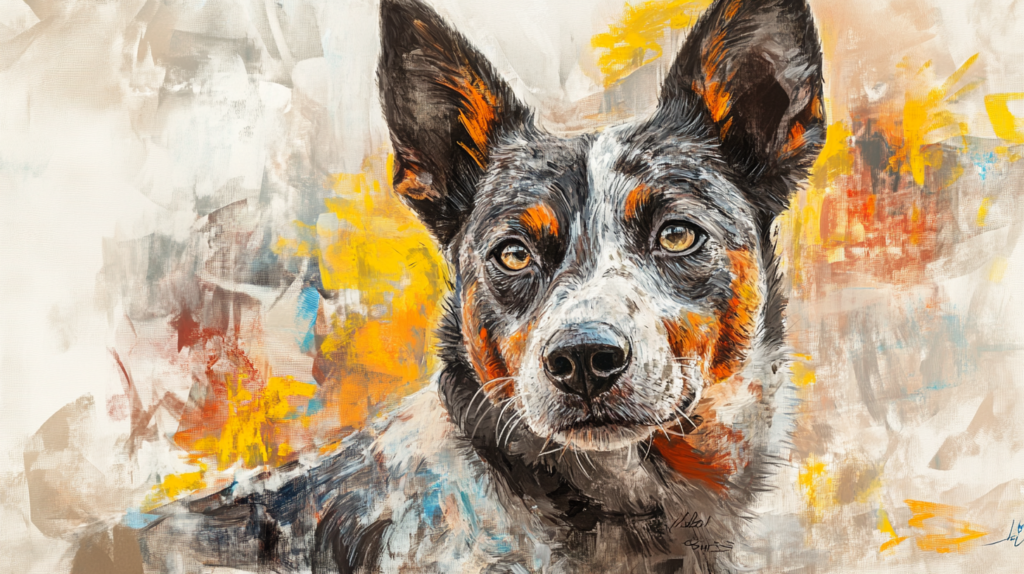
1. Understanding Australian Cattle Dog Temperament
Understanding Australian Cattle Dog temperament is essential for new owners eager to bond with their furry companions. But what exactly does “temperament” mean when it comes to our canine friends?
Definition of Temperament in Dogs
Temperament refers to the inherent personality traits and characteristics that influence a dog’s behavior. This includes how they react to various situations, interact with people and other animals, and respond to training.
Key Characteristics of Australian Cattle Dog Temperament
- Loyalty: ACDs are fiercely loyal and develop strong bonds with their owners.
- Protectiveness: Known for being vigilant, these dogs will guard their family and territory.
- Intelligence: High intelligence levels make them quick learners, which is fantastic for training but can also lead to stubbornness if not engaged properly.
- Energetic: With a zest for life, these dogs require ample exercise and mental stimulation to stay happy and healthy.
How Temperament Affects Behavior and Training
The Blue Heeler temperament significantly impacts behavior. Their herding instincts can manifest as nipping, especially without proper guidance. Training should focus on redirecting these behaviors into acceptable actions through positive reinforcement. Engaging activities like agility or obedience training not only harness their intelligence but also provide an outlet for their energy.
By comprehending the unique traits of the Australian Cattle Dog, new owners can cultivate a thriving relationship with their spirited companions.

2. Personality Traits of the Australian Cattle Dog
The Australian Cattle Dog (ACD), often fondly called the Blue Heeler, has a personality that is as vibrant and dynamic as its striking coat. Understanding these unique personality traits is essential for any prospective owner.
Loyalty and Protective Nature
One of the standout traits of the ACD personality is their unwavering loyalty. These dogs are fiercely devoted to their families, forming strong bonds with each member. This loyalty translates into a protective nature, making them vigilant guardians of home and hearth.
- Alertness: ACDs are known for being watchful, ready to alert their owners to any unusual activity.
- Protective Instincts: While this quality can be admirable, it also means they may be suspicious of strangers or new pets unless properly socialized from a young age.
Intelligence and Eagerness to Learn
The intelligence of the Australian Cattle Dog is another key aspect of its personality. Highly regarded as one of the smartest dog breeds, ACDs thrive on challenges that stimulate their minds.
- Quick Learners: Their eagerness to learn makes training sessions enjoyable. They grasp commands swiftly and often excel in obedience competitions.
- Problem Solvers: This breed enjoys engaging in mentally stimulating activities. Puzzles, agility courses, or even interactive toys can keep their sharp minds busy.
Energy Levels and Their Impact on Daily Activities
ACDs are renowned for their boundless energy levels. This trait can significantly influence daily routines for owners.
- Exercise Needs: Regular physical activity is crucial; without sufficient exercise, an ACD’s high energy may lead to boredom and undesired behaviors like chewing or digging.
- Active Lifestyle: Families who enjoy outdoor activities will find an enthusiastic companion in an ACD. These dogs excel at hiking, running, or participating in dog sports such as herding trials.
Herding Instincts
The herding instincts inherent in ACDs shape much of their behavior and personality. Bred to herd cattle across vast Australian landscapes, these instincts remain strong even in domestic life.
- Nipping Behavior: It’s not unusual for an ACD to exhibit nipping tendencies when they feel the need to herd people or other pets—especially children. Early training can help mitigate these behaviors.
- Playful Herding: Playtime can sometimes resemble herding exercises; they may try to gather family members or chase after toys with great enthusiasm.
Understanding these personality traits equips potential owners with insights into what makes an Australian Cattle Dog such a captivating breed. Each characteristic contributes to the unique charm of the ACD, ensuring that life with one will never be dull!
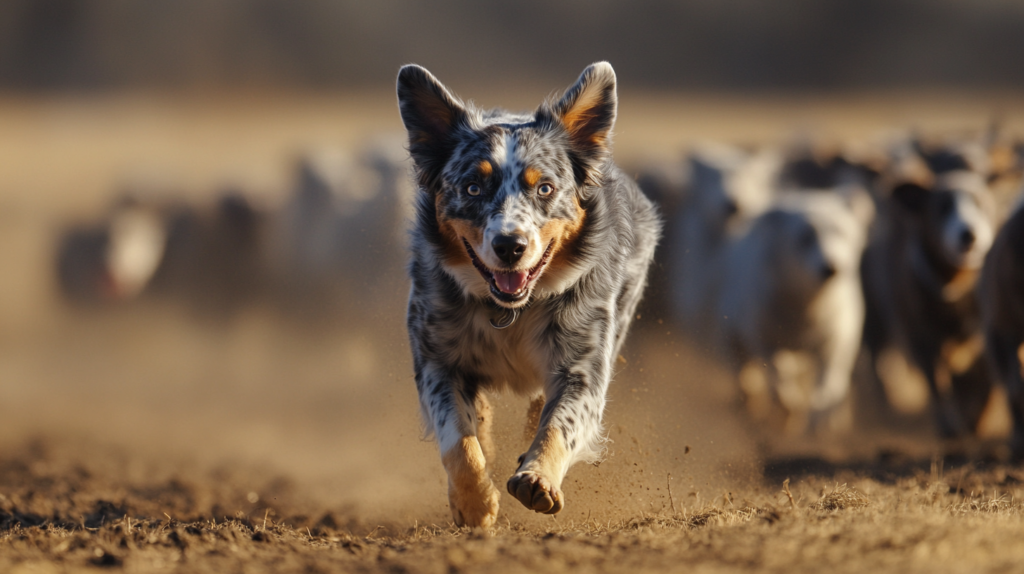
3. Are Australian Cattle Dogs Good Family Dogs?
When considering whether Australian Cattle Dogs are good family dogs, several factors come into play, particularly regarding their temperament and personality.
Socialization Needs
ACDs thrive on socialization, especially in families with children. Early exposure to various environments, people, and situations is essential. This helps them learn appropriate behaviors and reduces the likelihood of nipping or protective aggression. Regular interactions with kids can foster a bond, transforming an ACD into a loving companion.
Positive Aspects in Family Settings
The playful and affectionate nature of Blue Heelers makes them delightful additions to a family. Their loyalty knows no bounds, often forming strong attachments to family members. Some benefits include:
- Active Playmates: With high energy levels, ACDs love engaging in playtime activities.
- Protective Instincts: They can be vigilant guardians, protecting your home and loved ones.
- Intelligence: Quick learners who enjoy puzzles and games that stimulate their minds.
Potential Challenges
While ACDs can be wonderful family dogs, certain challenges may arise:
- High Energy Needs: They require daily exercise. Without it, they may become bored and develop undesirable behaviors.
- Herding Instincts: Their natural instincts might lead to nipping at children’s heels during play. Training and redirection techniques are crucial.
- Independence: Their headstrong nature can make training a challenge if consistency is lacking.
Creating a structured environment with clear boundaries helps mitigate these challenges while ensuring that both the dog and the family enjoy their time together.
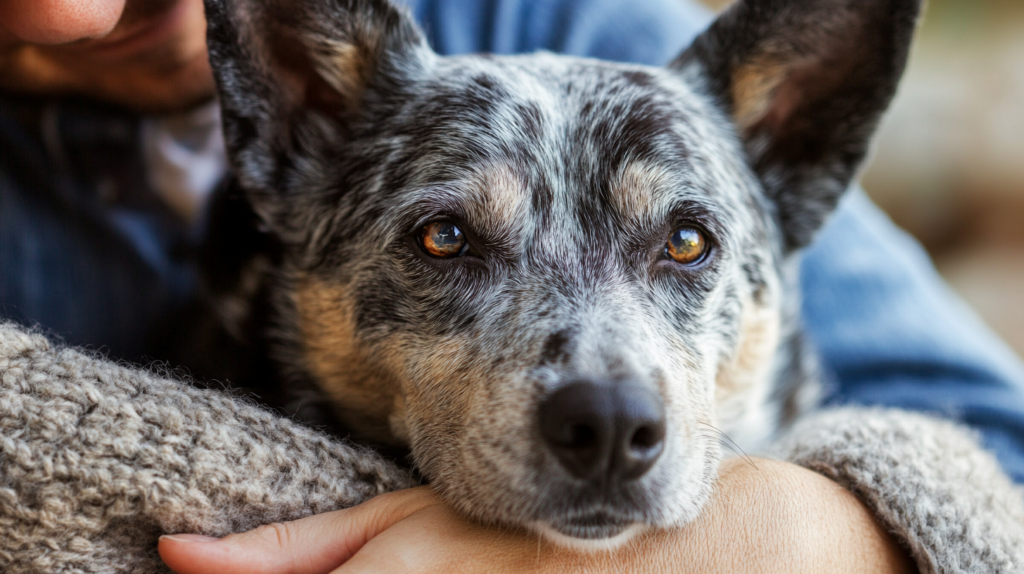
4. Blue Heeler Behavior Around Other Pets
Australian Cattle Dogs, affectionately known as Blue Heelers, have strong herding instincts that can affect how they behave around other pets. Here are some ways their natural instinct to herd may show up:
1. Nipping Behaviors
ACDs may nip at the heels of other animals, similar to how they would herd cattle. This instinct can lead to playful interactions but may also escalate into unwanted behaviors such as nipping and biting if not managed properly. It’s important to understand that these nipping behaviors can also be a form of excited biting, which is often seen in energetic breeds like the ACD.
2. Protective Nature
Blue Heelers are fiercely loyal. This loyalty often translates to protectiveness over their family members and territory, which can create challenges when introducing them to new pets or unfamiliar dogs.
Importance of Early Socialization
Early socialization plays a crucial role in shaping a well-adjusted Blue Heeler. Introducing your ACD to different environments, people, and animals during their formative months can help mitigate aggressive tendencies and reduce fear-based reactions.
Socialization Activities
Consider enrolling your ACD in puppy classes or arranging playdates with other vaccinated dogs. These experiences build confidence and teach appropriate play styles.
Tips for Introducing ACDs to Other Animals
When bringing a new pet into your home, follow these tips for a smoother introduction:
- Controlled Environment: Start introductions in a neutral space where both pets feel comfortable.
- Positive Reinforcement: Use positive reinforcement techniques such as treats and praise to reward calm behavior from both animals.
- Supervised Interactions: Always supervise initial encounters until you are confident in their behavior towards each other.
Understanding Blue Heeler temperament with other dogs equips owners to foster harmonious relationships with all family members, furry or otherwise!
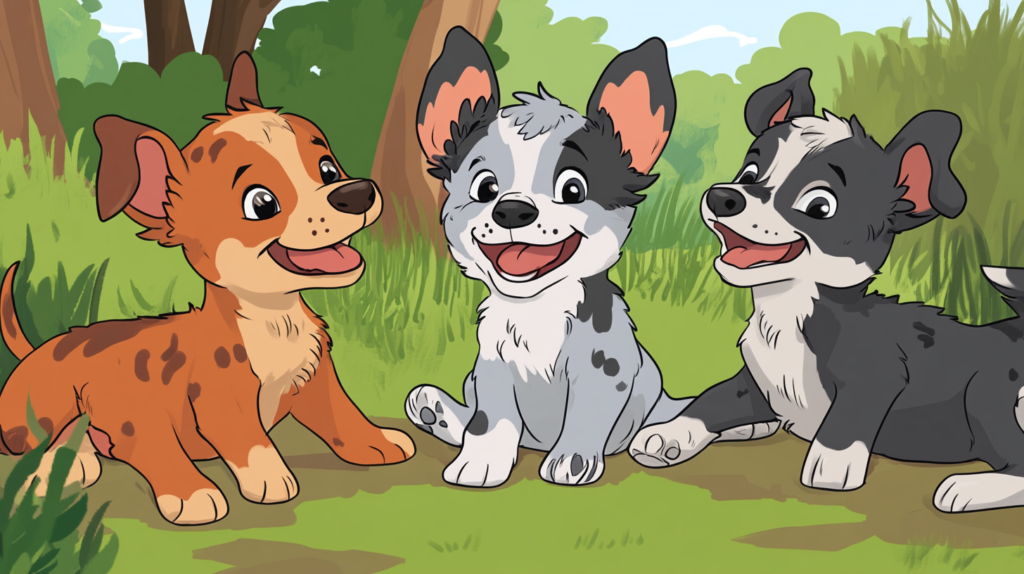
5. The Intelligence of Australian Cattle Dogs
Australian Cattle Dogs (ACDs) are considered one of the most intelligent dog breeds, often ranking in the top tier alongside Border Collies and Poodles. Their intelligence shines through in various ways:
1. Quick Learners
ACDs can grasp new commands and concepts with astonishing speed. This ability makes them excellent candidates for obedience training and competitive sports.
2. Problem Solvers
These pups are not just obedient; they also demonstrate remarkable problem-solving skills. Their herding background has honed their ability to think critically, making them adaptable in various situations.
The benefits of their high intelligence extend beyond mere learning capacity:
- Enhanced Training: ACDs respond well to positive reinforcement techniques, such as treats and praise. Their eagerness to please encourages consistent training sessions, leading to better behavior.
- Versatile Skills: With proper guidance, ACDs can excel in activities like agility, flyball, and herding trials. Their intelligence allows them to understand complex tasks quickly, keeping both mind and body active.
To harness the full potential of Australian Cattle Dog intelligence, consider these recommended training techniques:
- Short Sessions: Keep training sessions brief but frequent to maintain their interest.
- Variety of Commands: Introduce diverse commands and tricks to challenge their minds.
- Socialization Opportunities: Engage them in group classes or playdates to enhance social skills while learning.
By embracing these strategies, owners can cultivate a well-rounded and obedient companion that thrives on both mental stimulation and physical activity.

Socialization Needs
Australian Cattle Dogs thrive on social interactions, making effective socialization vital for their development. Here’s what you need to consider:
1. Early Exposure
Introducing your ACD to various environments, people, and other animals during puppyhood is crucial. This helps them grow into well-adjusted adults.
2. Positive Experiences
Encourage positive encounters. Use treats and praise when your dog meets new friends or explores unfamiliar places. This builds confidence and reduces anxiety.
3. Group Classes
Enroll in obedience or socialization classes. These settings offer structured interactions with other dogs and people, reinforcing good behavior.
4. Ongoing Socialization
Continue socializing your dog throughout their life. Regular trips to parks, dog-friendly events, and playdates with other pets keep their skills sharp.
5. Monitor Interactions
Always supervise playtime with younger children or smaller pets. The herding instinct might kick in, leading to nipping if not carefully managed.
With the right approach to socialization, your Australian Cattle Dog can be a friendly and adaptable companion, ready to take on the world alongside you!
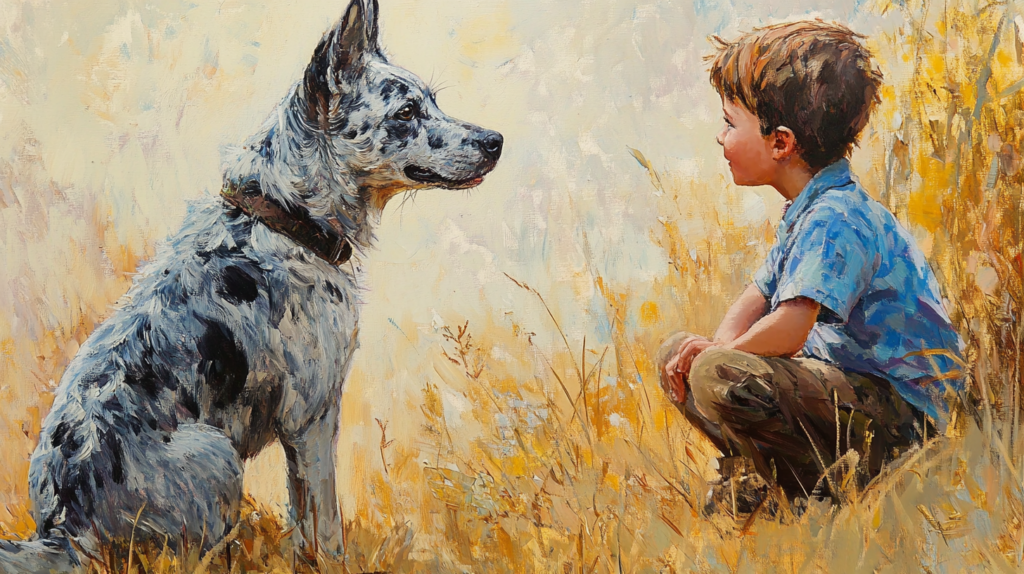
Conclusion: Embracing the Unique Temperament and Personality Traits of Your Australian Cattle Dog
Understanding Australian Cattle Dog temperament and personality traits is essential for successful ownership. These dogs thrive in environments where their physical and mental needs are met. Key aspects to consider include:
- Responsible Ownership: ACDs require not just exercise but also mental challenges. Engaging them in activities like agility training or obedience classes can keep their minds sharp and bodies healthy. Regular socialization with various people and pets helps curb potential behavioral issues.
- Lifestyle Considerations: Prospective owners must reflect on their daily routines and living situations. ACDs suit active households that can provide ample playtime, structured training, and social interaction. Those who frequently travel or have sedentary lifestyles may find it challenging to cater to an ACD’s high energy levels.
With their intelligence, loyalty, and vibrant personalities, Australian Cattle Dogs can be delightful companions when matched with the right owner. Understanding these factors empowers new owners to create a fulfilling life for themselves and their furry friend, setting the stage for a lasting bond filled with adventure and joy!
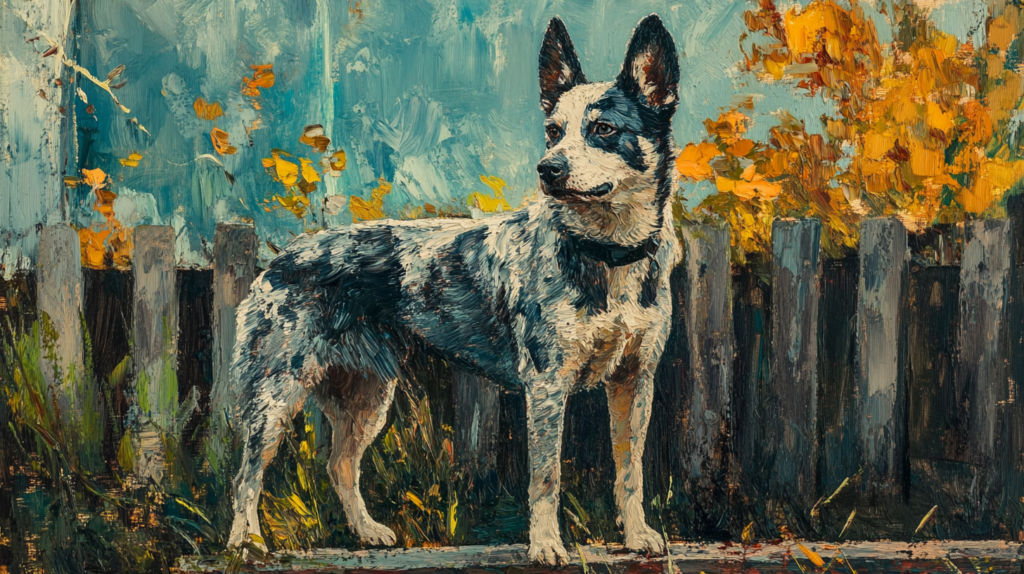
FAQs (Frequently Asked Questions)
What is the temperament of an Australian Cattle Dog?
The Australian Cattle Dog, also known as the Blue Heeler, is known for its loyal and protective nature. They are highly intelligent, eager to learn, and possess strong herding instincts. Understanding their temperament is crucial for effective training and behavior management.
Are Australian Cattle Dogs good family pets?
Yes, Australian Cattle Dogs can be good family pets when properly socialized. They are loyal and can bond well with children. However, they require sufficient exercise and mental stimulation, and families should be aware of their herding instincts which may lead to nipping behaviors if not managed.
How do Australian Cattle Dogs behave around other pets?
Australian Cattle Dogs may exhibit herding behaviors towards other pets, which can sometimes lead to aggressive interactions if not properly socialized. Early socialization is essential to mitigate these tendencies and ensure positive interactions with other animals.
What are the personality traits of an Australian Cattle Dog?
Australian Cattle Dogs are known for their loyalty, intelligence, and high energy levels. They are eager learners who thrive on training and activities that engage their minds and bodies. Their protective nature makes them excellent companions for active families.
How intelligent are Australian Cattle Dogs compared to other breeds?
Australian Cattle Dogs are considered one of the most intelligent dog breeds. Their intelligence allows them to excel in obedience training and various canine sports. Utilizing positive reinforcement techniques can enhance their learning experience.
What should prospective owners know before adopting an Australian Cattle Dog?
Prospective owners should understand that Australian Cattle Dogs require a significant amount of exercise and mental stimulation due to their high energy levels. It’s important to consider your lifestyle and ensure you can meet their needs for companionship, activity, and training before adopting an ACD.
